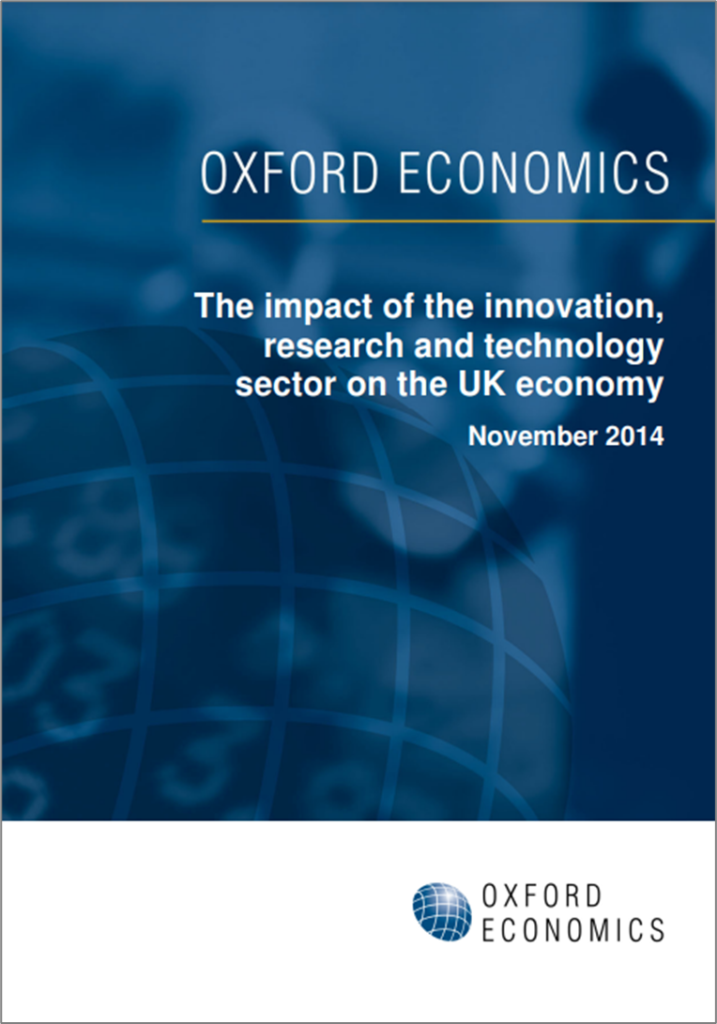Recent release | 18 Nov 2014
The impact of the Innovation, Research and Technology Sector on the UK economy

Economic Consulting Team
Oxford Economics

Oxford Economics has estimated the contribution of the innovation, research and technology sector to the UK economy, taking into account not only the direct, indirect (supply chain) and induced (employee spending) impacts, but also a range of additional or ‘catalytic’ impacts.
The latter are particularly important for this sector, due to the amount of research and development undertaken by the organisations themselves and to activities enhancing the benefits of R&D undertaken by universities and industry (e.g. through collaboration, networking and the provision of facilities such as technology parks).
Taking all of these impacts into account, we estimate the sector’s contribution to the UK economy in 2013 to have been in the £32-36 billion range, or some 2.3-2.6% of total GDP.
About the team
Our economic consulting team are world leaders in quantitative economic analysis, working with clients around the globe and across sectors to build models, forecast markets and evaluate interventions using state-of-the art techniques.
Related Services

Post
The economic impact of abandoning the WTO
Oxford Economics have been commissioned by the International Chamber of Commerce (ICC) to provide an independent assessment of the economic impact of WTO dissolution. This report details our findings and the assumptions underpinning our analysis.
Find Out More
Post
The economic impact of the sports activities of public service media
This study shows how the sports activities of public service media supported €4.5 billion of GDP and 57,000 jobs across 31 European countries in 2022. The report also highlights wider economic benefits of public service media sports coverage, such as the way in which it leverages sponsorship income for sports bodies.
Find Out More
Post
Global Trade Education: The role of private philanthropy
Global trade can amplify economic development and poverty alleviation. Capable leaders are required to put in place enabling conditions for trade, but currently these skills are underprovided in developing countries. For philanthropists, investing in trade leadership talent through graduate-level scholarships is an opportunity to make meaningful contributions that can multiply and sustain global economic development.
Find Out More
